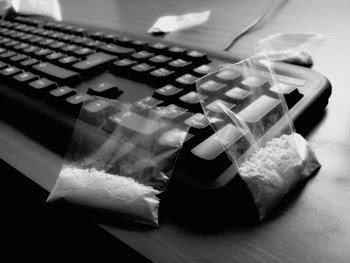 |
| drug testing Australia |
When Daniel Skelly was found dead in his home November 2013 from a drug overdose, it was a complete shock to everyone who knew him. The death was sudden, which was a shock in itself since he was only 21 years old. The shock was doubled when it was confirmed the death was due to a cocaine overdose. As his mother explained, “I had never seen him drunk, I never saw a single sign that he might be taking drugs.”1 His parents had no idea he was using drugs or where he was getting them. So his mother began searching social media sites and bank accounts, and what she found was an underworld economy built on the Deep Web that relied on the mysterious bitcoins for currency.
Baby Boomers make up the last generation that can talk about growing up with no internet. Gen X grew up with emerging technology, but the Millennials and the Digital Generation or Gen Z are full blown children of the internet age. Younger people are now tech savvy and comfortable learning every new technology that appears. Consider the fact that the Silk Road, a secret online drug trading site, was allegedly developed and maintained by a Millennial, Ross Ulbricht, who was also an engineer.
Going Deep for Drugs
The anonymous website Silk Road was run on the Deep Web or Dark Web, the internet equivalent of an underground, black market operation. The Dark Web or Deep Web is accessed through a browser called TOR and operates below the surface of the mainstream Internet operation or Visible Web. The Visible Web is accessed using the well-known search engines like Google. The Deep Web is “invisible” in that it is not accessed by traditional search engines. The Deep Web surprisingly makes up 96 percent of the internet content and is anonymous. In the simplest terms, the Deep Web stores information in databases instead of web pages, and files go through several interconnected servers as encrypted data. It takes a special anonymous browser like TOR to reach into the Deep Web.2
TOR is not illegal and is used by people and groups that need privacy. For example, it is used by journalists and the police. However, since the Deep Web is anonymous, it is also used for criminal activity, including dealing drugs, arranging assassinations, trading weapons, and sharing child pornography. Silk Road was one of the online drug dealing and assassination sites on the Deep Web. People could buy illicit drugs using bitcoins, a virtual currency that is actually strings of computer coding.
Though Silk Road was shut down, it was not the only Deep Web drug dealing site. When Daniel Skelly’s mother investigated how her son bought drugs on Silk Road, she learned that, after Silk Road’s shutdown, he began using the similar sites Black Market Reloaded and Sheep. However, unlike Silk Road, these sites are easily accessed and openly list illicit drugs, synthetic drugs, and prescription medications for sale. Daniel was buying cocaine from these sites with nitcoins, the only type of currency accepted. Astonishingly, the cocaine was delivered right to Daniel’s door via Express Post.
Here to Stay
In the 2013 Global Drugs Survey, one 1-out-of-10 people admitted they purchased drugs online. These are the tech savvy people who are completely comfortable using the internet, bitcoins, the Deep Web, and other technologies. Mrs. Skelly learned during her research that there is a growing number of young Australians buying drugs online, and they are not worried about getting caught. There is already a SilkRoad2 operating, in addition to sites like Pandora, The Pirate Market, Agora, and NiceGuy. Academics and government authorities freely admit that the Deep Web is here to stay and largely uncontrollable.
Employers cannot stop workers from using the Deep Web to buy drugs.
However, they can take several important steps to keep substances out of the workplace. First, there should a current drug and alcohol policy in place at all times. Second, pre-employment drug & health testing can identify those who are substance free. Third, a random onsite AOD testing program should be implemented and consistently maintained. Fourth, workers must be regularly trained on the policy and procedures and the relationship of health and wellness to drug and alcohol abuse. Last but not least, managers must always be alert for indications of drugs and alcohol. For example, perhaps an unexpected Express Post should be opened in front of more than one person.
Mediscreen offers a high quality on-site drug and health screening system and onsite Health & Wellness testing. Experienced professionals work closely with employers across Australia to ensure that quality AOD screenings are used in the effort to maintain a substance free workplace.
No comments:
Post a Comment